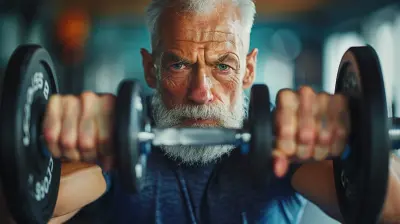The Connection Between Mental Health and Bone Well-Being
5 September 2025
When we think about bone health, we often picture a glass of milk, calcium supplements, or weightlifting exercises. But have you ever considered the role your mental health plays in keeping your bones strong? Surprisingly, the mind and bones are more connected than we might think. Stress, anxiety, and even depression can have significant effects on our skeletal system, weakening bones and making them more prone to fractures.
In this article, we'll dive deep into the fascinating relationship between mental health and bone well-being. We'll break down the science, highlight the risks, and—most importantly—offer practical solutions to keep both your mind and bones in top shape. 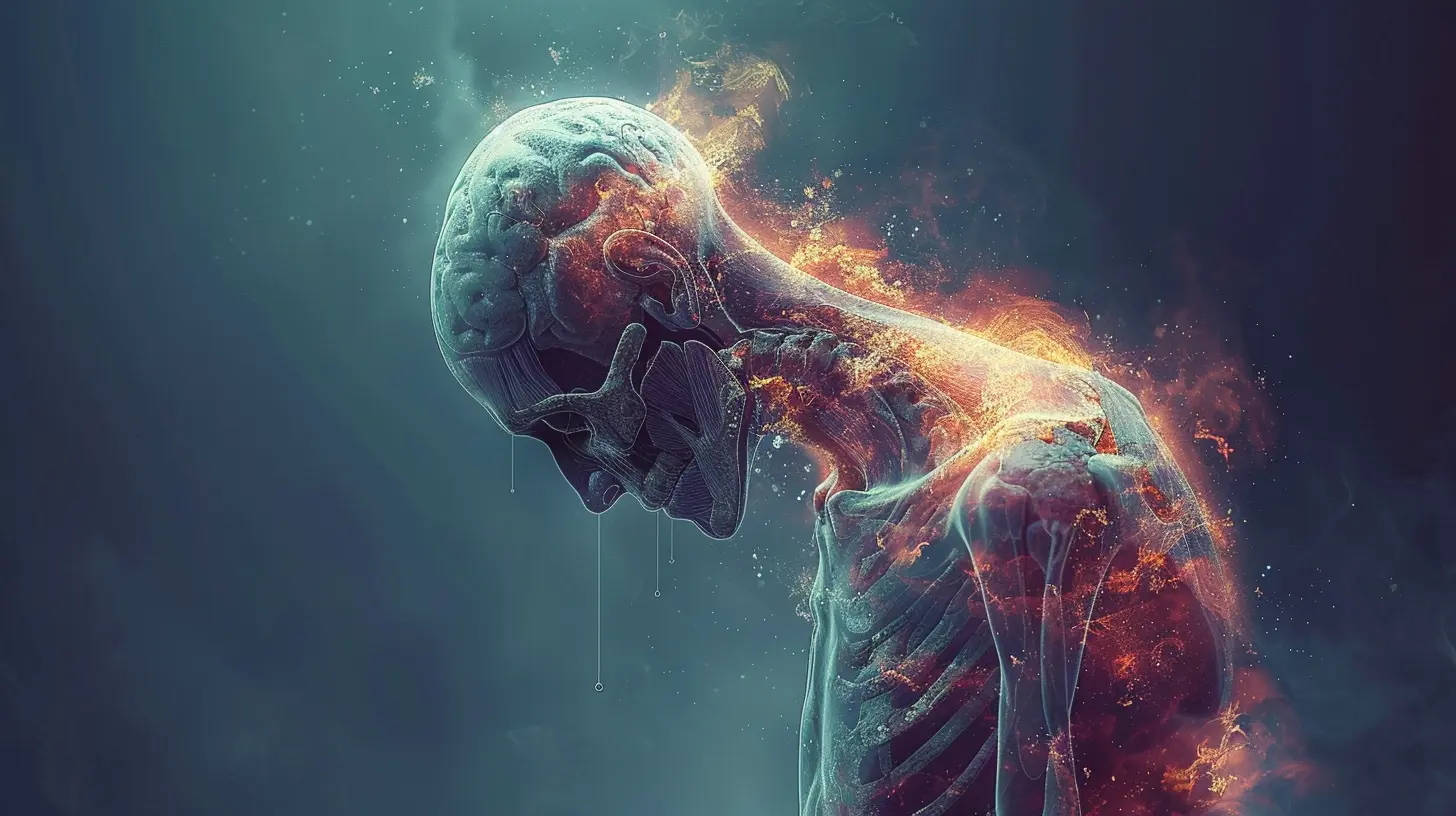
How Mental Health Affects Bone Health
Our body operates as one interconnected system, meaning when one aspect suffers, others often follow. Here’s how mental health conditions, such as stress and depression, can directly affect bone health.1. The Stress-Hormone Connection
Chronic stress triggers the release of cortisol, a hormone that helps the body respond to stressful situations. While cortisol is essential in short bursts, prolonged exposure to high levels can be damaging.- Cortisol Weakens Bones: Excess cortisol reduces calcium absorption and increases calcium excretion, leading to lower bone density over time.
- Inflammation Increases: Persistent stress can promote inflammation, which not only affects joints but can also interfere with bone-building cells called osteoblasts.
If you’re constantly under stress—whether from work, relationships, or finances—your bones might silently be suffering alongside your mind.
2. Depression and Bone Loss
Depression isn’t just about feeling low; it also has physiological effects that can weaken bones. Studies suggest that people with depression often have lower bone mineral density (BMD) compared to those with stable mental health.- Decreased Physical Activity: When you're depressed, the motivation to exercise plummets. Less movement means less bone-strengthening activity, which can lead to weaker bones over time.
- Poor Nutrition Habits: Depression often results in poor eating habits, including low calcium and vitamin D intake, both of which are essential for maintaining strong bones.
- Hormonal Changes: Depression is linked to higher levels of cortisol, which, as mentioned earlier, negatively impacts bone density.
3. Anxiety and Osteoporosis Risk
Anxiety isn’t just in your head—it’s in your bones, too. Research indicates that people with chronic anxiety disorders are at a higher risk of osteoporosis, especially in women.Why? Because anxiety often leads to:
- Increased Cortisol Production (just like stress)
- Poor Sleep Patterns, which disrupt normal bone-remodeling cycles
- Muscle Tension, which can lead to posture problems and an increased chance of fractures
If you frequently deal with anxiety, your bones could be silently taking a hit without you even realizing it. 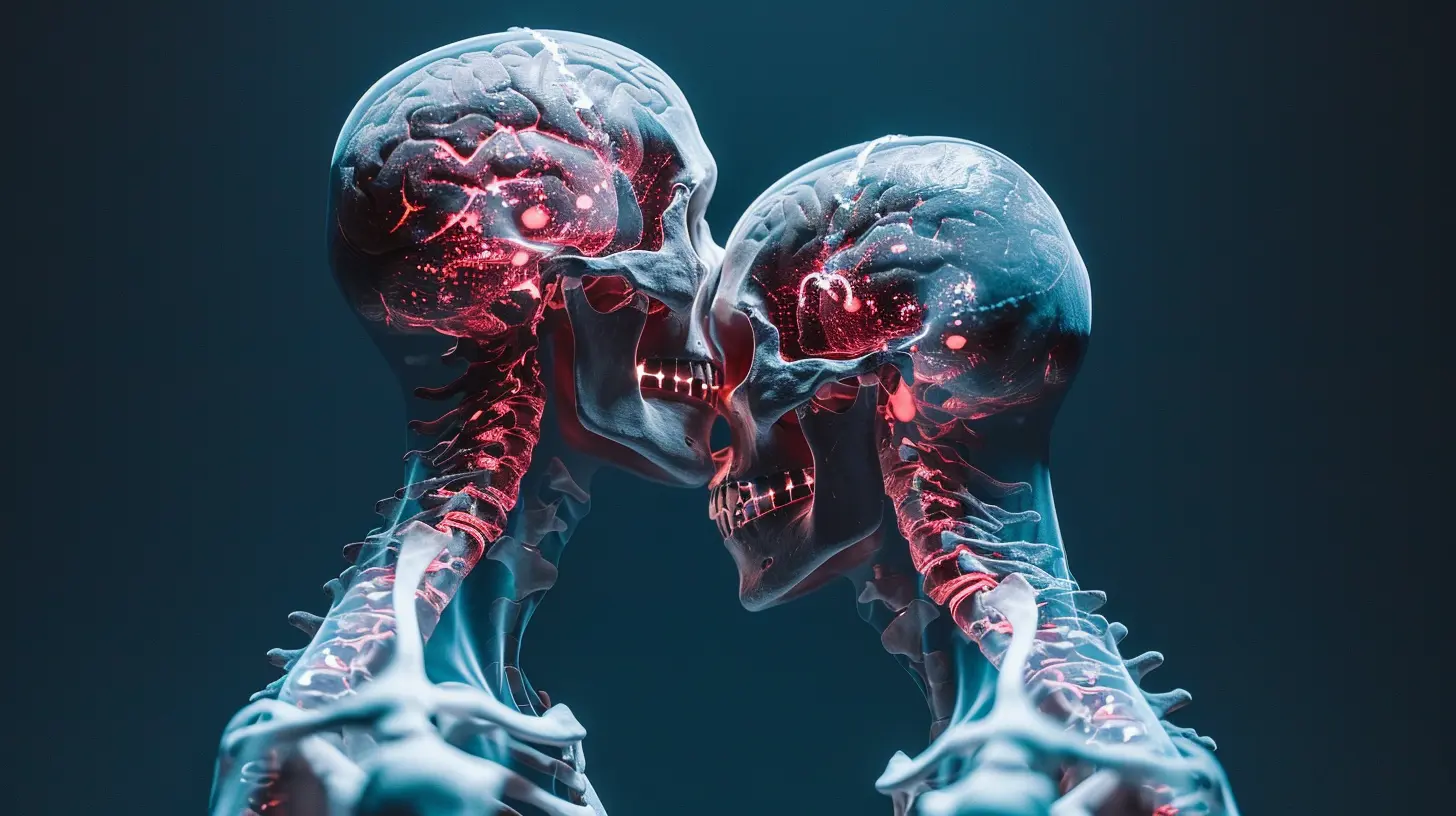
The Role of Sleep in Mental and Bone Health
Ever notice how everything feels worse after a bad night’s sleep? That includes both your mental health and your bones. Sleep is when our body repairs itself—including bone tissue. If you’re not getting quality rest, it can negatively impact both your mood and bone renewal.- Lack of Sleep Increases Cortisol – More cortisol means weaker bones
- Disrupted Hormones – Sleep helps regulate important hormones like growth hormone, which is essential for bone formation
- Fatigue Leads to Poor Lifestyle Choices – Less sleep often results in poor diet, reduced physical activity, and increased stress—all of which harm bones
If you're struggling with sleep, it might not just be your energy levels that are suffering—your bones could be paying the price, too. 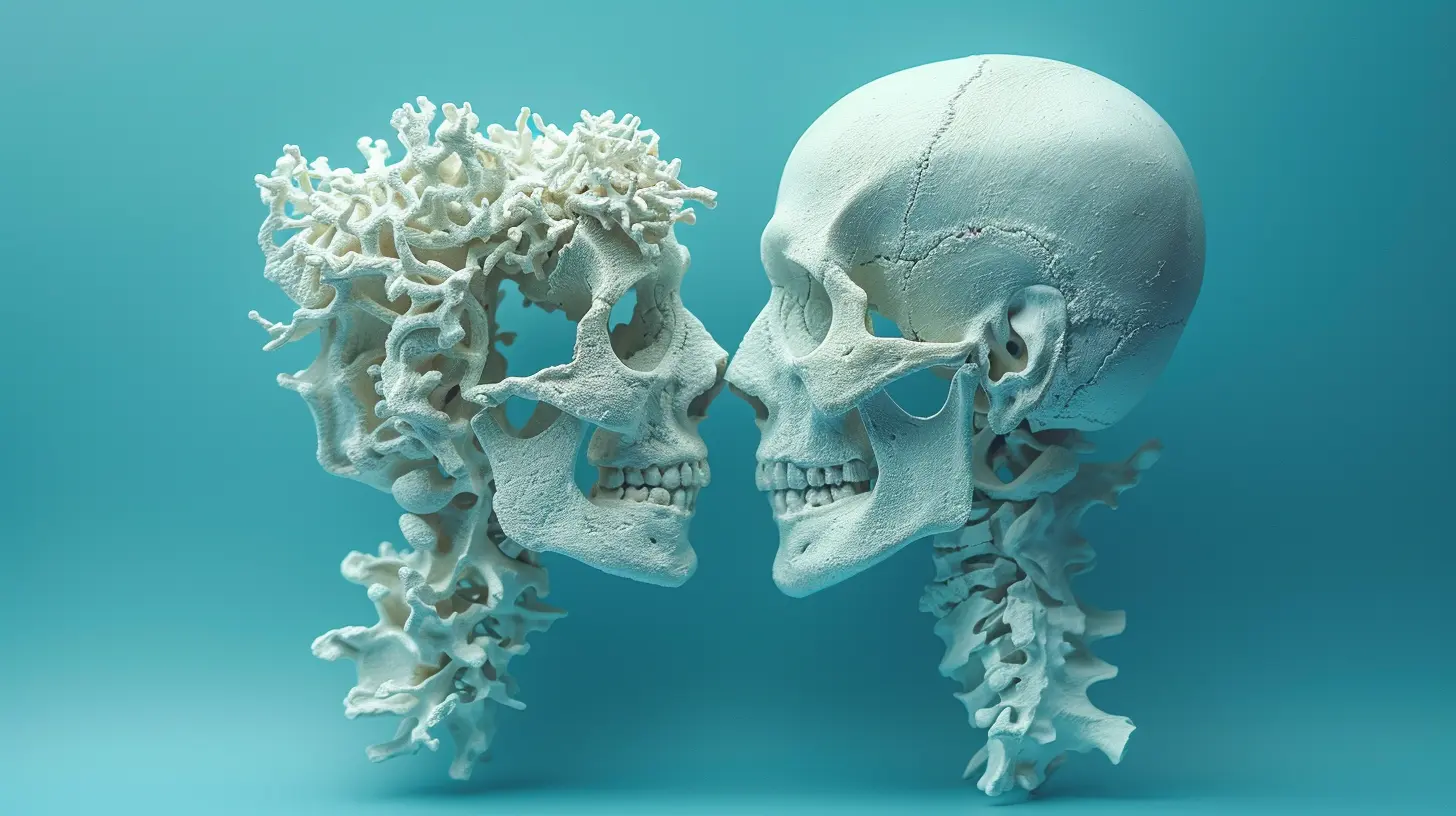
Ways to Protect Both Your Mental Health and Bone Well-Being
Now that we've established the link between mental health and bone health, let's talk about how you can protect both at the same time.1. Manage Stress Effectively
Since stress is a major culprit in bone weakening, it’s essential to find ways to keep it under control. Here’s how:- Practice Mindfulness & Meditation – These techniques help lower cortisol levels, benefiting both mental and bone health.
- Exercise Regularly – Activities like yoga, walking, and strength training can improve your mood while strengthening bones.
- Deep Breathing Techniques – Breathing exercises can help stop stress in its tracks before it impacts your body.
2. Prioritize Mental Wellness
Your mental well-being directly impacts your skeletal system, so taking care of your mind is also taking care of your bones.- Consider Therapy or Counseling – If stress, anxiety, or depression are overwhelming, professional help is a great step toward better health.
- Engage in Hobbies You Love – Whether it’s painting, cooking, or hiking, engaging in enjoyable activities helps release feel-good hormones that support bone health.
- Connect with Loved Ones – Social interactions have been shown to improve mental health and reduce stress, indirectly benefiting bones.
3. Eat for Both the Mind and Bones
A well-balanced diet does wonders for both mental and skeletal health. Here’s what to include:Bone-Boosting Foods:
- Dairy products (yogurt, cheese, milk) – rich in calcium- Leafy greens (kale, spinach, collard greens) – excellent plant-based sources of calcium
- Fatty fish (salmon, sardines) – loaded with vitamin D and omega-3 fats
- Nuts & seeds (almonds, chia seeds) – contain important bone-friendly minerals like magnesium
Mood-Boosting Foods:
- Dark chocolate – helps lower stress hormones- Berries – packed with antioxidants that reduce inflammation in the brain and body
- Green tea – contains compounds that help manage stress levels
By making thoughtful choices in your diet, you’re not just fueling your mind but also fortifying your bones.
4. Prioritize Quality Sleep
Poor sleep takes a toll on mental and bone health. To improve sleep quality:- Set a Consistent Sleep Schedule – Going to bed and waking up at the same time helps regulate hormones.
- Limit Screen Time Before Bed – Blue light from screens disrupts melatonin production, making it harder to fall asleep.
- Create a Relaxing Bedtime Routine – Reading, warm baths, or light stretching can signal your body that it’s time to wind down.
Better sleep not only enhances your mood but also allows your bones to repair and renew properly. 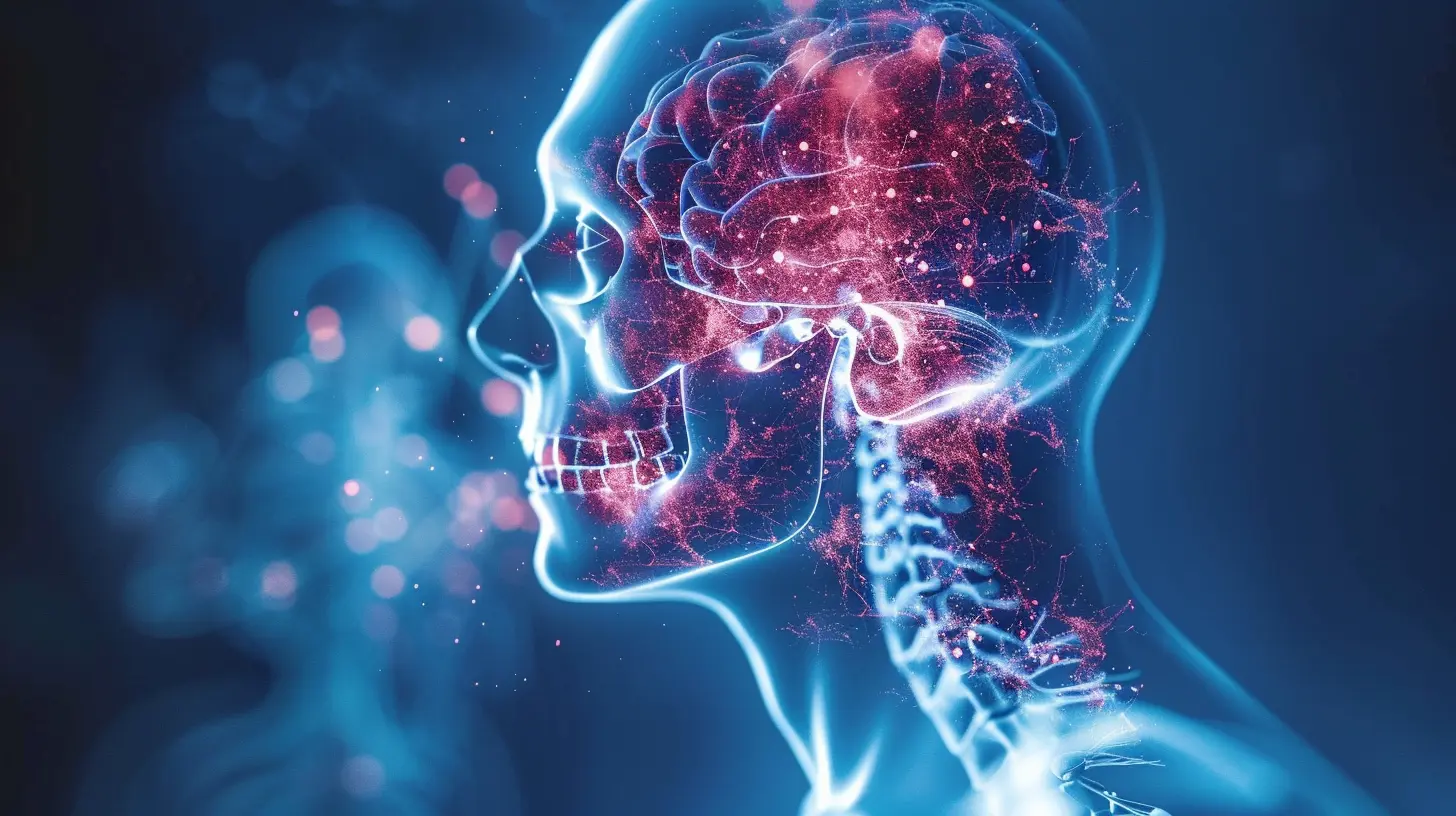
Final Thoughts
Your bones and mental health are more connected than most people realize. Stress, anxiety, and depression can take a serious toll on your skeletal system, increasing the risk of osteoporosis and fractures. But the good news? By managing stress, eating right, exercising, and prioritizing sleep, you can protect both your mental and bone well-being.Think of your body like a house—your bones are the foundation, and your mental health is the blueprint that keeps everything in place. When one weakens, the entire structure can become unstable. So, take care of both, and they’ll take care of you in return.
all images in this post were generated using AI tools
Category:
Bone HealthAuthor:

Holly Ellison
Discussion
rate this article
1 comments
Selene Garcia
Understanding the link between mental health and bone well-being emphasizes the need for a holistic approach to health. Nurturing our minds can significantly contribute to stronger bones, highlighting the interplay of body and mind.
October 2, 2025 at 3:47 AM

Holly Ellison
Thank you for your insightful comment! I completely agree that a holistic approach is crucial, as nurturing mental health can indeed enhance our overall physical well-being, including bone health.


